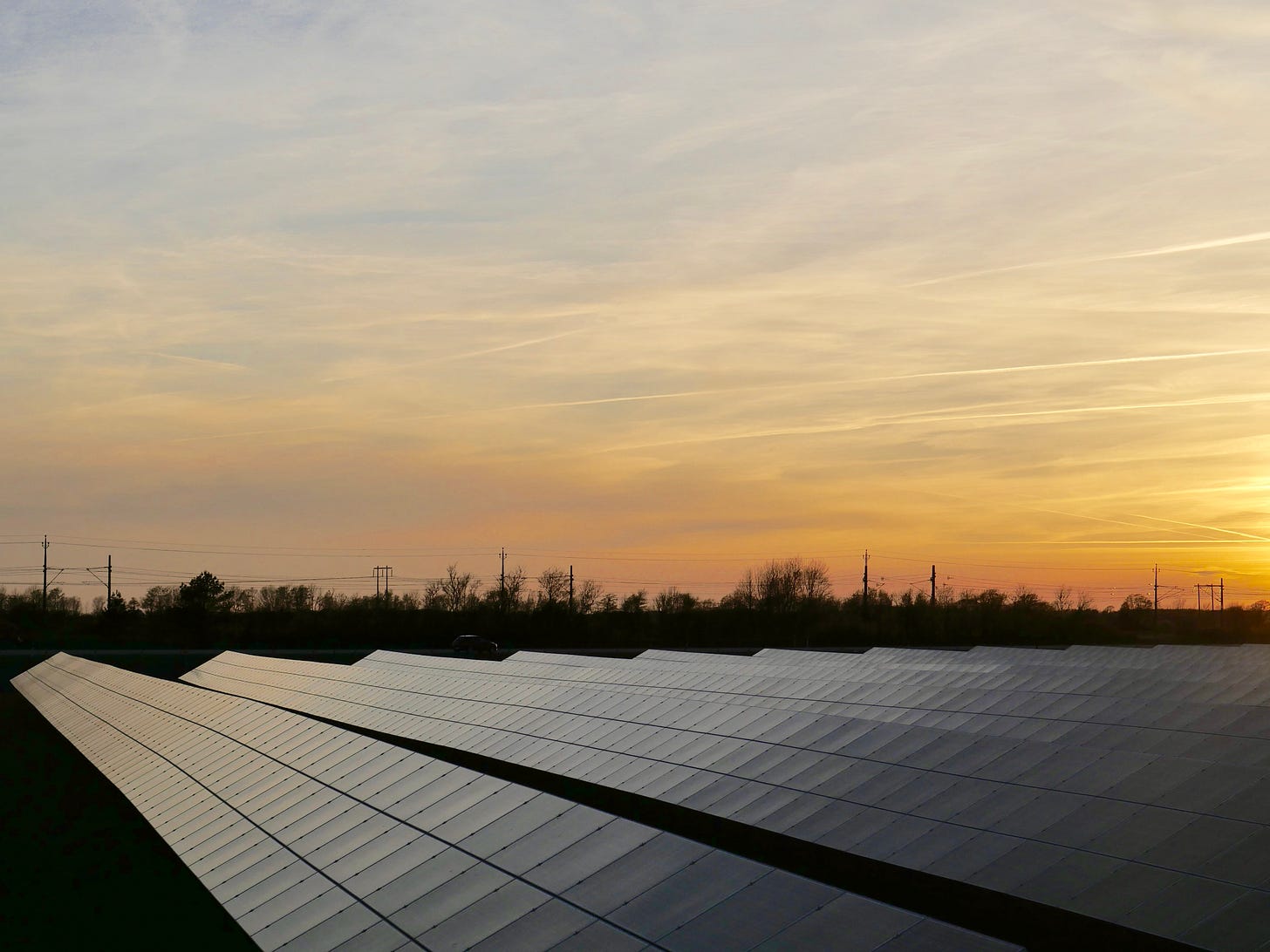A shake-up in the Nelson County Planning Commission
The Board of Supervisors' vote in favor of the Wild Rose Solar Project triggers a pair of sudden resignations from the Planning Commission
I had a Geometry teacher in high school once explain to the class a very basic mathematical concept. He turned to the white board and drew a small circle.
“This is a dot!”
He then turned his back to us and drew another dot, connecting the two with a stroke of his marker.
“Now that’s a line. Two dots determine distance and direction!”
He turned his back to us again and drew a third dot, connecting that one to the others.
“Connect-o-dot! Three dots determine space!”
To me, I saw a triangle but to my teacher, the polygon he drew represented so much more. The man loved geometry and though his enthusiasm didn’t make me an A-student in his class, I appreciated his zeal for all things mathematical. After all, a dot on a board may be insignificant. But add a few others, and you may be on your way to identifying a pattern.
***
On January 14, 2025, the Nelson County Board of Supervisors met to vote on the Wild Rose Solar Project, an industrial scale solar farm planned in Gladstone, a project in which the Planning Commission voted to reject last summer on the grounds that it wasn’t aligned with the Comprehensive Plan. Though a recommendation from the Planning Commission doesn’t dictate actions by the BOS, the Board’s 3-1 vote to approve the project was stunning to many people. As part of the deal, the project developer proffered to the county just over $20 million.
The following day, Planning Commission member Mary Kathryn Allen — who lives in Gladstone and spoke out against the project at the BOS meeting — announced her resignation from the PC effective January 31, 2025.
“… in June, the Planning Commission voted 5-0 to not recommend the Solar Project, yet last night’s vote saw the BOS representative, Ernie Reed, not only vote in favor of the project but also motion for it as Chair.”
Her resignation represents the first dot on our geometry board.
Now, for the second dot.
This morning, a reader of this blog shared with me a copy of an email Planning Commission member Robin Hauschner had sent out announcing his resignation from the group.
“Unfortunately, I cannot reconcile my personal feelings with the board's decision to approve the Wild Rose Solar Project and do not see the continued attendance of these meetings as either productive to a desirable end or fair to the community members who I am meant to make recommendations on behalf of.
At the hint that Virginia may remove the right of Nelson to make this decision in the future, an easy answer was adopted by the board: Get as much money as possible. By virtue of ownership, Shell Corporation has come into Nelson County and bought the privilege to exact a festering wound on our land and sanitize their public image in the same stroke.”
Readers, are we seeing a pattern develop? If two dots — or in this case, resignations — determine a line and direction, are we seeing fault lines emerge in the way in which Nelson County has been governing and developing land use policies? A pair of people resigning from the Planning Commission doesn’t just happen.
Not so fast, Ernie Reed assured me by phone. After chatting with Mary Kathryn and Robin, I reached out to Ernie for his take as he sits on both the PC and the BOS. In short, with regards to the solar project, he believed the Planning Commission “totally got it wrong when it comes to the comprehensive plan,” adding that it seems that the main point of friction against approval of the project was due to its perceived scale.
The Wild Rose project footprint comprises 550 acres, though the land parcels involved total 2470 acres. In an email following our phone conversation, Robin pointed out that the impacts to the county from such large projects are indeed significant.
“As was mentioned last night at the planning commission meeting, CVEC is already proposing a battery installation for their substations in Nelson County to help accommodate unbalanced loads in energy production and demand. As renewable energy penetrates the Virginia energy market, installations such as this will become commonplace, a mandatory feature to maintain this balance.”
In his email, Robin included this geological summary from the USGS:
“Per the summary, "Excluding U.S. production, worldwide lithium production in 2023 increased by 23% to approximately 180,000 tons from 146,000 tons in 2022 in response to strong demand from the lithium-ion battery market." Expectations for the future highlight even greater expansion. Here is a figure pertaining to lithium production from Benchmark, a London-based company that provides forecasts for minerals relating to lithium-ion batteries and the EV supply chain.””
Reed remains an optimist and a proponent of the Wild Rose Solar Farm. “What other county has an opportunity to house a carbon free (project with) significantly low impact?”
Or, in other words, perhaps Wild Rose isn’t as thorny as it may appear, and maybe these resignations are just dots on a whiteboard, benign events that shouldn’t signal alarm.
Stay tuned …






No pipeline. No solar fields. Maybe we should subsidize more acreage to jellybean fields for power. I understand marshmallow trees are a good alternative power source too.